CBS students demand more teaching in sustainability
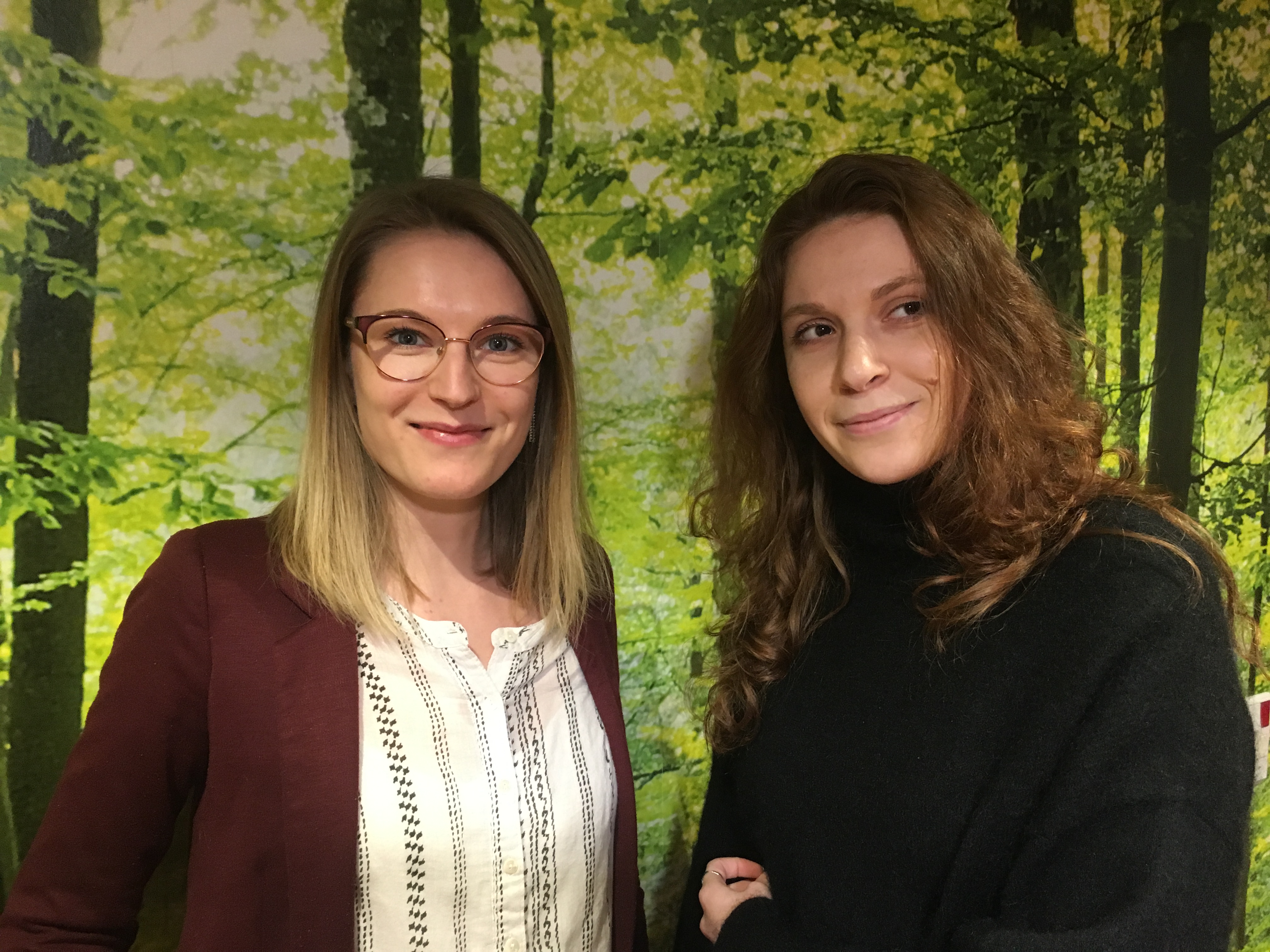
Johanna Zimmermann and Patricia Valdman are part of OIKOS educational team working to get more sustainability in teaching. (Photo: Anne M. Lykkegaard & Mette Koors)
Sustainability isn’t just a trend that’s about to pass. Teachers are experiencing that students demand to be taught more about sustainability. Two students from OIKOS think that CBS needs to introduce more mandatory courses in sustainability if it wants to be in tune with the future of businesses and consumer behavior.
It is not enough that our groceries and way of living is sustainable, our teaching has to be sustainable too, argues Johanna Zimmermann and Patricia Valdman, both CBS students and members of the Education team at the international student organization OIKOS.
They, together with the teachers at CBS, are experiencing an increasing interest and demand for more courses on sustainability. And CBS better act on these demands, put forth by the students, if CBS is not to be late in giving students the right skill sets needed to become the sustainable and responsible leaders of tomorrow.
“Some students work with sustainability in high school, but when they come to CBS, they learn about traditional economic theory and linear business models that are not fit for the development of a more sustainable business sector. Some students at CBS even complete a degree without being introduced to sustainability. Maybe the universities are already late in terms of giving the students the right skills,” says Patricia Valdman, who is doing her master in Management of Creative Business Processes and continues:
“Sustainability isn’t just a trend. Young people care about it, and we will grow old and still think sustainably. And our consumer behavior, and the business sector should fall in line with that.”
Hardcore business students want courses on sustainability
CBS is home to the fourth greenest MBA in world, and the Director of the MBA program, Poul Hedegaard, is feeling the interest in sustainability from his students. Last year, they had a waiting list of 26 students, and the new generation of students are asking for skills that make them capable of not only earning money.
“We try to give the students the skills and a 360 degree understanding of how to manage a company in a responsible way. This applies whether you’d be working within the field of finance or marketing. The outlook and appetite for responsible management and sustainable business practices have changed with the new generation of MBA students, that is on average 30 years old. They not only want to earn a lot of money, they also want to do something good,” says Poul Hedegaard.
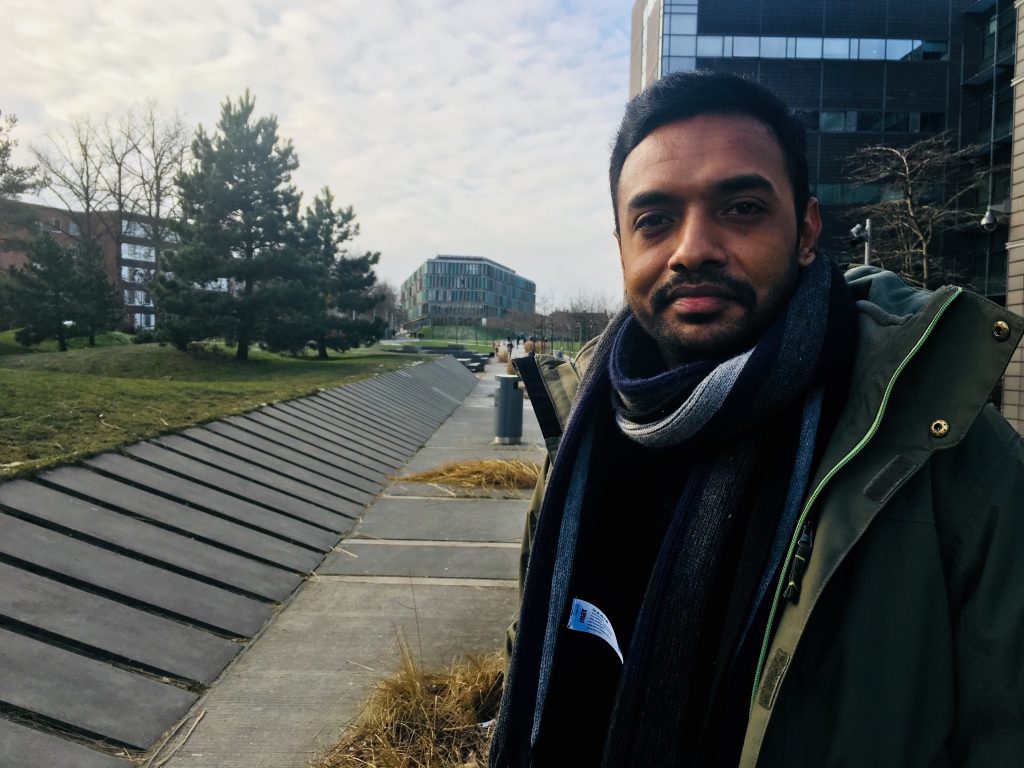
Ashok Srinivasan is studying the full-time MBA, and is excited about getting knowledge that can help him improve the maritime industry. However, he thinks CBS could do more to be sustainable itself. Read his story a little further down. (Photo: Anne M. Lykkegaard.)
On another level of teaching, Henrik Sornn-Friese, Academic Director of the master program in Economics and Business Administration (Cand. Merc) and Esben Rahbek Gjerdum Pedersen, Professor and teacher of CSR at the Department of Management, Society, and Communication, explain that courses and electives on sustainability quickly get filled up, and that students, both from bachelors and masters, refer to sustainability related issues in their thesis and assignments on a more frequent basis.
“Companies ask for graduates with knowledge and skills within this area. And I’m experiencing that the students are asking for more sustainability in their curricula. Either because they believe it will help them get their dream job, or because they genuinely have an interest in the subject. And then I have also seen an increase in master theses revolving around sustainability,” says Henrik Sornn-Friese.
Esben Rahbek Gjerdum Pedersen joins in:
“Even among the hardcore business students, there is an interest in this subject. We can see that, as we have no issues what so ever to fill up our minor on sustainability or the other electives on this subject, and the students are asking for more,” he says.
Companies can no longer hide their dirty deeds
Everyone seems open towards more teaching in sustainability and CSR in general. But why is it even needed at a business school? Isn’t it more up to the technical universities and schools to educate graduates who can invent the solutions needed to cool down the earth or invent bio degradable products?
The short answer is no. Business schools have a big responsibility in shaping the future as well. And companies can no longer hide their dirty deeds, points out Henrik Sornn-Friese.
Consumers will punish companies if they don’t live up to certain standards
Patricia Valdman
“It’s one of our greatest challenges. I strongly believe that we have an ethical obligation to educate graduates to, ‘not only make a buck,’ but to fundamentally shape the future for the coming generations. Companies will increasingly be punished for not being sustainable, so they need the graduates to promote and drive this agenda,” he says.
Patricia Valdman points out that her fellow students are well aware of the issues pertaining sustainability, and a lot of them are acting consciously on it. She mentions that OIKOS has had to turn students who want to be a part of OIKOS down, simply because they did not have the capacity to take in more students.
“Consumers will punish companies if they don’t live up to certain standards. And there’s nothing worse than green washing,” she says.
Johanna Zimmermann, who is doing a Master in Business and Development adds:
“In this day and age, students have the possibility to travel around the world and actually see, to a certain extent, how global value chains effect societies. And this awareness does not only concern us as consumers,” she says.
Poke the study boards
So, how are we going to get more sustainability introduce into the curricula? At the moment, Johanna Zimmermann and Patricia Valdman are, for instance, working on getting in contact with the study boards so that they can be a part of the decision-making processes regarding the composition of courses and electives.
In that way, they hope to be able to influence and inspire the study boards to become more sustainable in their teaching.
However, students themselves have already done something to get sustainability on the agenda, states Patricia Valdman.
“I know a group of students who have developed their own elective. It was structured as a study group focusing on sustainability, and they got ECTS points for it. That’s proof that there’s a hole in the market, and that CBS should do more to meet that demand,” she declares.
I strongly believe that we have an ethical obligation to educate graduates to, ‘not only make a buck.'
Henrik Sornn-Friese
Johanna Zimmermann and Patricia Valdman both experience that the Senior Management are being supportive towards the work of OIKOS, however, it seems difficult for teachers to act on it.
“The Senior Management supports our aim and wants to encourage students and teachers to take this up. However, if there is a demand, teachers should act on it themselves as well. Sustainability is a broad term, and maybe that’s why they don’t know how to fit it in or what it means to them,” says Patricia Valdman.
Johanna Zimmermann breaks in, as she has an idea about how to help the teachers in getting more sustainability into the curricula.
“How about creating a workshop for teachers, telling them all about sustainability, both in a broader sense and with regards to modern business conduct in order to give them an understanding of the actual relevance. This could give them inspiration on how to implement it into their curriculum. I mean, sustainability is important for all the courses offered at CBS. It isn’t only about renewable energy. It can also be about introducing more female authors and teachers into the curricula,” says Johanna Zimmermann and adds that she would be more than willing to act on the idea and make it come true.
“During my bachelor, the majority of my lecturers were male. Being aware of that and the representation of women in the curriculum is a part of sustainability too,” points out Patricia Valdman.



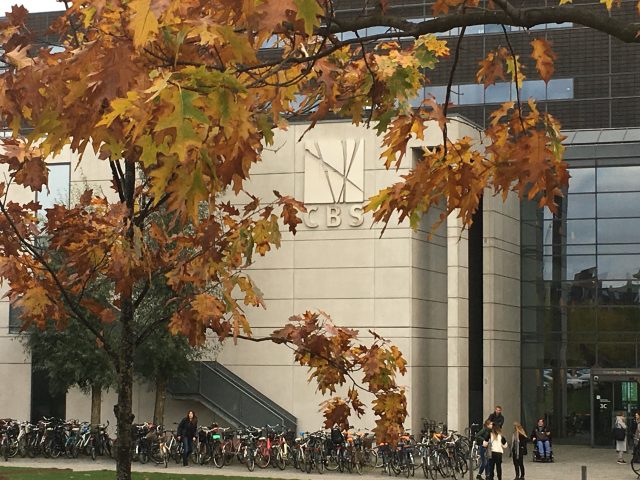
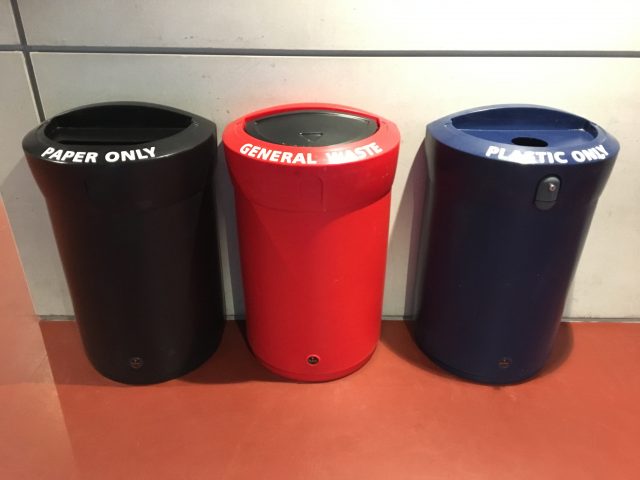
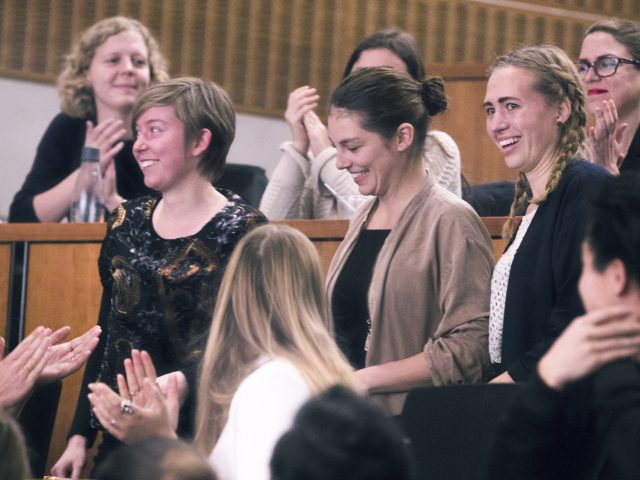
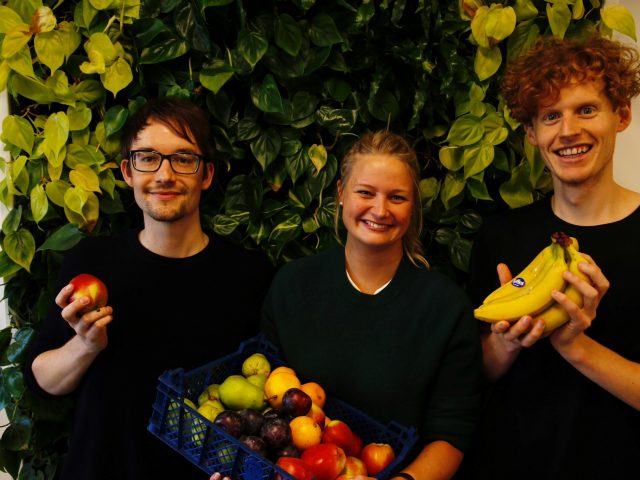


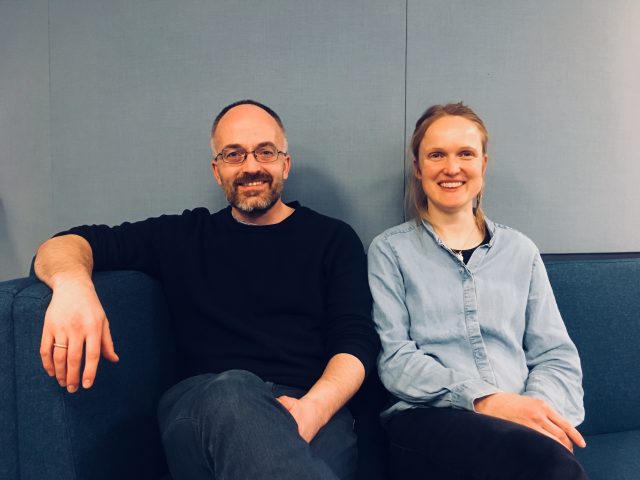




























































































































Comments